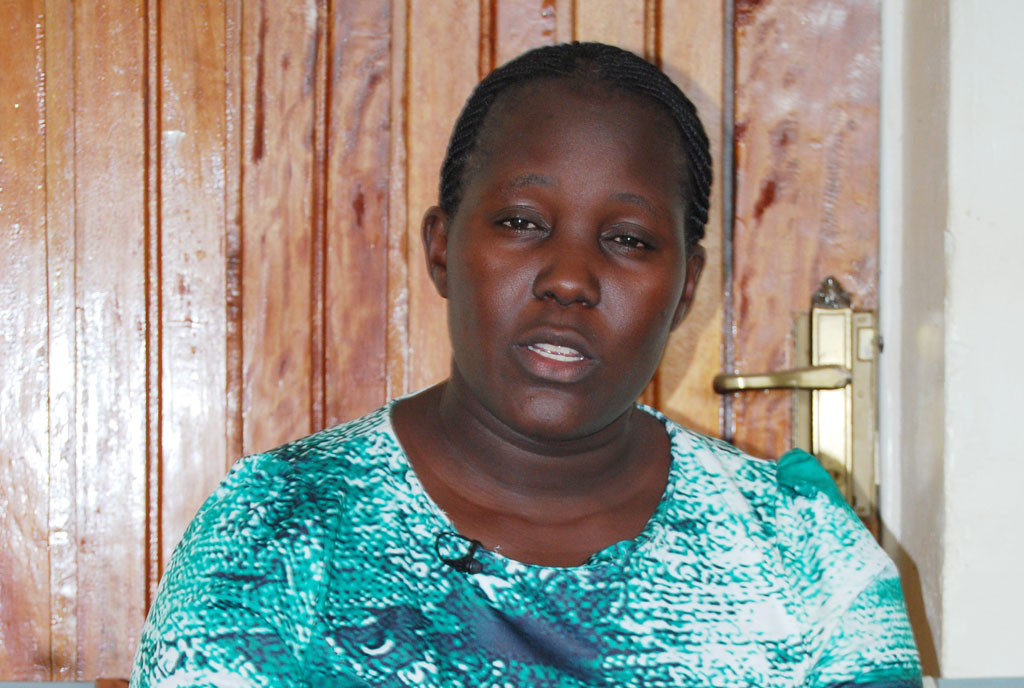
As a sportswoman, Nandudu had always wanted to pursue a sports-related course. PHOTO BY Gillian Nantume
SPORTS SCIENCE: There are courses at the university that many of us probably did not understand and one such course was Sports Science. Christine Nandudu studied this and now shares what it entails.
Christine Nandudu is a sports officer and inspector of schools for Nakapiripirit District. The 34-year-old grew up in Indian Quarters in Mbale District and attended Nabumali High School and Mbale Secondary School. She is passionate about the education of the girl-child.
How come you hold two jobs that are completely different in scope?
I graduated with a Bachelor of Science in Sports Science from Makerere University in 2009. In 2012, I joined Ndejje University for a postgraduate diploma in Education. In 2013, I came to Nakapiripirit as a sports officer, but because of my dual profession, I was also assigned the duties of an inspector of schools.
What do sports scientists do?
Well, we know the science of sports — how the body moves, how it responds, what angle to kick a ball from if you want to score, the rules of the game, and basically how people should play different games.
As a sports officer in rural Uganda, what exactly do you do?
I coordinate the sports activities of the schools in the districts and draw up an annual sports calendar. Where there is funding, I ensure children are trained in primary school and get exposure in national sports competitions. I coordinate community sports as well. This is where the district identifies the best talents when they are still at a tender age.
Why did you choose sports science?
Right from the time when I was a child, I have always loved sports. I played netball, handball, football and did athletics. Even today, I still play. After I completed Senior Four, I began telling my friends that I wanted to pursue a career in sports, although I did not know that such a thing existed.
My aunt, who was a nursing sister in Mulago hospital, wanted me to pursue Medicine because my grades were good. When I joined Senior Five, my career guidance teacher told me that a sports science course existed at Kyambogo University. I did not want to go to Kyambogo, though. I kept believing that I would find a way out. I found it when I went to visit my sister at Makerere University. I applied for the course and was admitted.
Wasn’t your aunt disappointed?
Her disappointment was so great that she did not talk to my father for three years. I kept telling her, though, that it is better for me to do something I love because then, I would have the passion for it.
Even after cutting off your dad, she continued speaking to you?
Since she was working in Mulago hospital, I used to visit her from time to time. But our conversations were strained. We would only greet each other and talk about the weather. She was so angry that even when my young sister wanted to study Medicine, she snubbed her. She said I was the one whom she wanted to follow in her footsteps.
How is your relationship now?
We mended fences after I graduated. She is now retired. I assured her that it is good for people to do what they want because if they faced challenges in the future, they would have no one to blame but themselves. I reminded her that no one had forced her into the nursing profession; she had chosen it on her own.
What roadblocks hamper girl education in Nakapiripirit?
Girls take on motherly roles very early in life, taking care of their siblings. In the village schools, the girls go to school with these toddlers because at school, they are guaranteed a meal at lunchtime, which they share with the babies. Some of the babies they bring to school are below the age of one. This affects their concentration in class because every now and then, they have to move out of class to quiet the baby.
Another challenge is that in some communities, parents take their daughters out of school and take them to Kenya for circumcision. Once a girl is circumcised, she becomes a ‘woman’ and is married off at the tender age of 10 or 12. At that age, she fetches many cows as bride price.
So it is true that some parents still believe education is a waste of time?
Oh, yes. Some believe that if you take a girl to school, she will become a prostitute. Some schoolgirls engage in early sex and become pregnant. When they return to the community, people consider them spoilt and when they are married off, their bride price is very small. On the other hand, the uneducated girls remain at home, with their virginity intact, and they fetch a huge bride price. That is why parents believe education is prostitution.
What is the saddest situation about these teenage mothers?
They cannot afford to take care of their children. Last month, I met a four-year-old child, who looked like a one-year-old, in Namalu parish. The child was suffering from malnutrition. We need affirmative action for Karamoja in terms of infrastructure.
With this, we can construct boarding facilities for school-going girls so that they do not have time to engage in premature sex.






























































